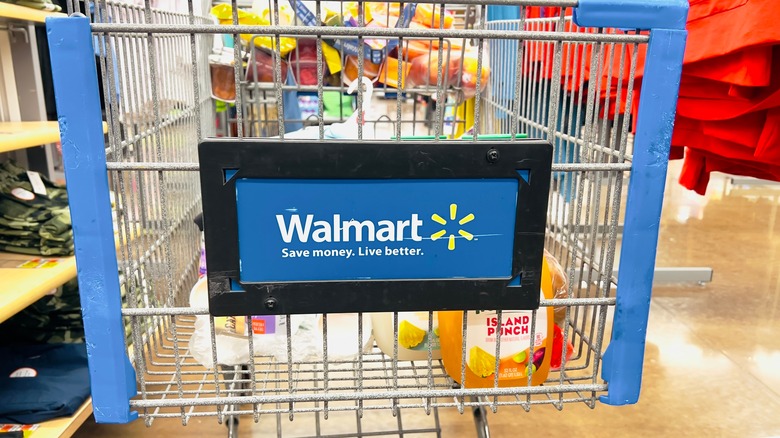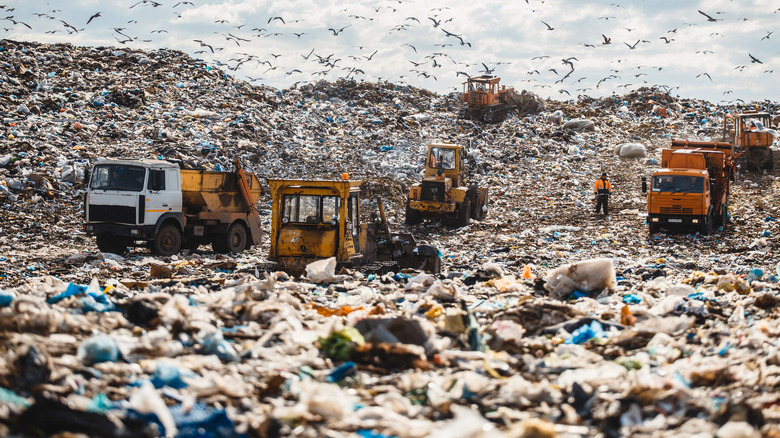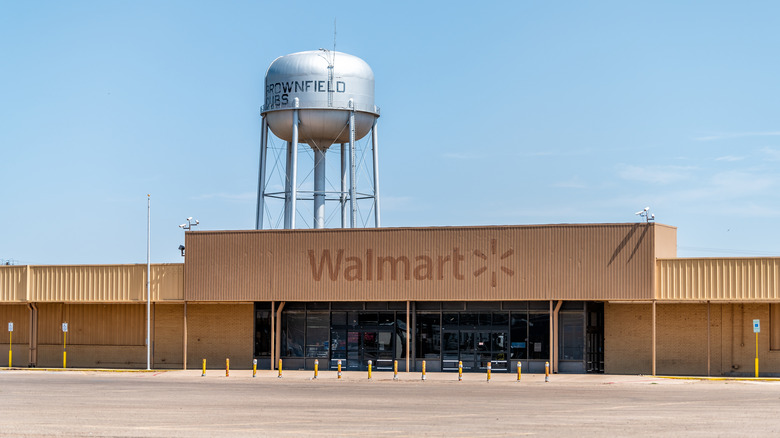Is Walmart A Socially Responsible Company?
When it comes to convenience and one-stop shopping, there are few retailers more efficient than Walmart. The company is known for its supercenter stores that stock pretty much anything you could ever need, whether you're looking for home goods, clothing, or groceries. With rising concerns around the impact of human activity on climate change, though, pressure is growing for large retailers such as Walmart to prove that their business practices are in line with sustainable climate goals, according to an Ipsos report.
Walmart states that the company is stepping up to the challenge, with a section of its website dedicated to sustainability initiatives and goals, one of which includes beating the target set by the Paris Climate Agreement of reducing carbon emissions to net zero by 2050. The company even set its own sustainability target of net zero emissions by 2040, a full decade early. But the question remains as to whether Walmart is actually helping to make the planet a greener and healthier place, or are its business practices continuing to hasten global warming and its disastrous impacts on society?
Unfortunately, the truth is that Walmart is continuing to prioritize profit over planet, rendering many of its sustainability initiatives ineffective, according to a report from the Institute for Local Self-Reliance. Walmart's business practices, including its eternal focus on expansion, continue to push out competitors with more sustainable practices and put pressure on supply chains to maintain operations with high levels of carbon emissions.
Walmart as a waste machine
One of the most prominent examples of how Walmart is continuing to operate in a manner that ultimately harms the planet is the type of goods it produces and sells. Walmart is notorious for its low prices, which have helped the company stay afloat during recent periods of high inflation. However, it can only achieve those prices by producing goods cheaply, meaning many of its products are made with inferior materials that are not built to last. These products will inevitably break down sooner than would more durable products, driving customers to throw them out and head straight back to Walmart to buy again. Meanwhile, Walmart's goods continue to fill up landfills, and the energy and resources required to replace products has more of a negative effect on the climate than the impact of making more durable goods in the first place.
Walmart claims that it is reducing waste by implementing more sustainable initiatives in its store operations. These initiatives include prioritizing recyclable, reusable, or compostable packaging (although it should be noted that Walmart is only prioritizing such packaging for private brands). The company also says it is reducing energy use throughout its supply chain, particularly in its product factories operating within China. In the end, these initiatives pale in comparison to the vast amounts of waste created by selling low quality products that will be quickly thrown out and replaced.
Walmart's dishonesty about sustainability
The Federal Trade Commission (FTC) recently successfully sued Walmart for $3 million after it argued that the company had engaged in greenwashing, as reported by Winsight Grocery Business. Greenwashing occurs when a company makes false claims about the environmental sustainability of its products or business practices (via Investopedia). The FTC accused Walmart of greenwashing because it marketed several products as having been made of bamboo, a sustainably sourced material, when the products had been converted from bamboo into rayon, a process that both requires and produces toxic chemicals that harm the environment. The products Walmart marketed as sustainable choices because of their alleged bamboo composition included nursing bras, a pillow, washcloths, a weighted blanket, and a comforter.
Another area of Walmart's sustainability operations that the company is not exactly up front about involves its land use. Walmart's sustainability website features its Focus on Nature campaign, which has a stated goal of "protecting, managing, or restoring at least 50 million acres of land and at least 1 million square miles of ocean by 2030." Yet in actuality, Walmart's business model of single-story, sprawling supercenters significantly contributes to land and habitat destruction, not preservation. Walmart has expanded the number of its stores by 33% since 2005. To further complicate matters, the company has a practice of abandoning older supercenters instead of remodeling them, choosing to build newer stores nearby and leaving the old buildings vacant. Such business decisions are the opposite of sustainable.


